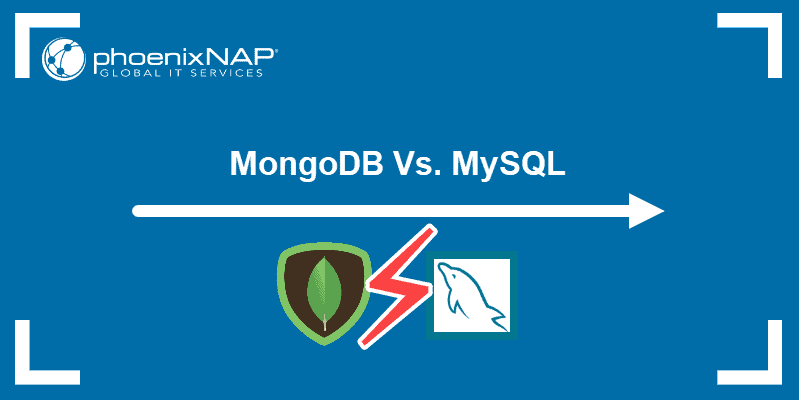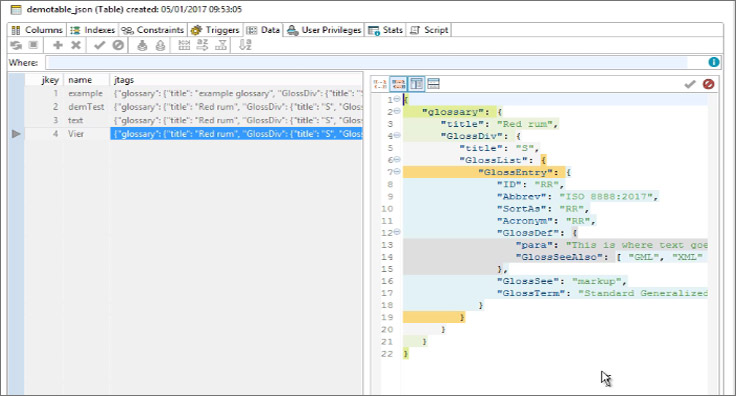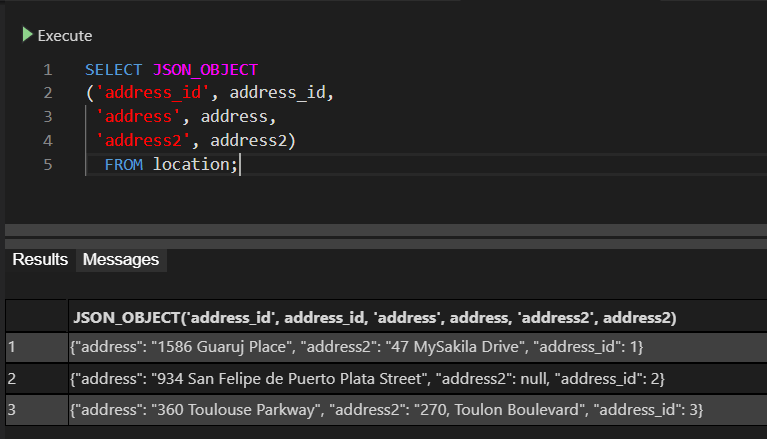

One of the splendiferous features of a relational database table is that is enforces a schema at the storage level. However, what we can see is that when we "unwrap" the JSON value using JSON_UNQUOTE(), MySQL will fall-back to coercing strings and numbers on-the-fly. Meaning, in the context of a JSON object, 1 and "1" are not the equal. When comparing an input to a JSON value, MySQL does not coerce the operands. Then, we can just run a number of comparisons against String and Number values:Īs you can see, everything came back as TRUE except these two comparisons: To test, we can create an in-memory JSON value using JSON_OBJECT(). Before digging into value comparisons, it wasn't clear to me how all of this would come together. The latter of these two methods will remove the quotes ( "") from an extracted String, which may or may not change the actual data-type of the resolved value. When it comes to the JSON data structures in MySQL 5.7, you can "extract" a value using JSON_EXTRACT() (or ->) and then, you can "unquote" an extracted value using JSON_UNQUOTE() (or ->). The most critical of which is that type coercion will bypass index selection during query planning which may result in a full-table scan. This got me thinking about the new JSON support in MySQL 5.7: will simple values get coerced when comparing an input to a JSON path?ĬAUTION: While MySQL will happily coerce values on-the-fly during a comparison, note that this does have implications. However, document databases like MongoDB are much less lenient and will not cast values on-the-fly. Meaning, from a SQL execution standpoint, 1 and "1" are equal because the SQL engine will coerce the values as needed (much like ColdFusion). Need a reporting tool for MySQL? Ubiq makes it easy to visualize data in minutes, and monitor in real-time dashboards.Generally speaking, SQL is pretty lenient when it comes to simple types and value comparisons. Here is the first SQL query mentioned above, in Ubiq. Ubiq Reporting tool supports all the above SQL queries and makes it easy to visualize SQL results in different ways. mysql> select detail s->'$.spend' as spend Here is the SQL query to extract first element of array spend. Similarly, if you want to extract an array element from a JSON, then you can access them using square brackets ‘’ and index of array element.

#Mysql json compare how to#
mysql> select detail s->'$.resolution.x' as widthĪlso read : How to Convert datetime to UTC in MySQL If you want to retrieve resolution.x value, that is, from an object, then you can do so using the dot (.) operator, as shown below. mysql> select id,Īlso read : How to Get Multiple Counts in Single Query in MySQL You can also use these operators in WHERE clause as shown below. Here is the SQL query to extract browser name from details column mysql> select id,Īs you can see -> returns output as quoted strings, while -> returns values as they are. > will get the string value while -> will fetch value without quotes. MySQL provides two operators ( -> and -> ) to extract data from JSON columns. How to Retrieve data from JSON column in MySQL

"resolution": 'Īlso read : How to Avoid Inserting Duplicate Records in MySQL We will insert the following JSON data in our table. Let us say you have the following table users(id, details) where id is an integer and primary key while details is a JSON data type column. In this article, we will look at how to query JSON column in MySQL. Sometimes you may need to search JSON array of objects, extract JSON data or retrieve JSON data in MySQL.


 0 kommentar(er)
0 kommentar(er)
